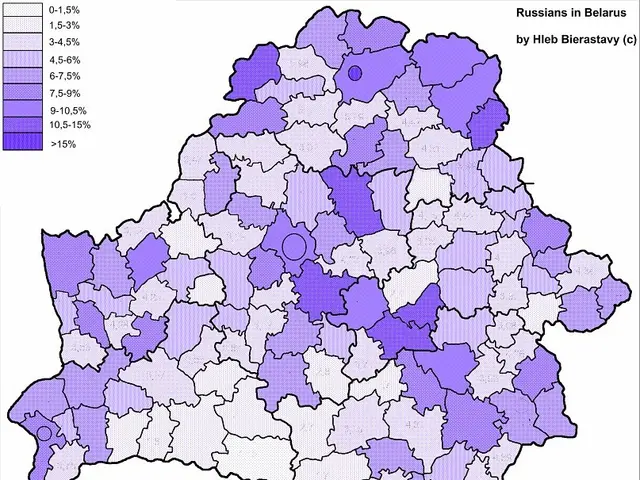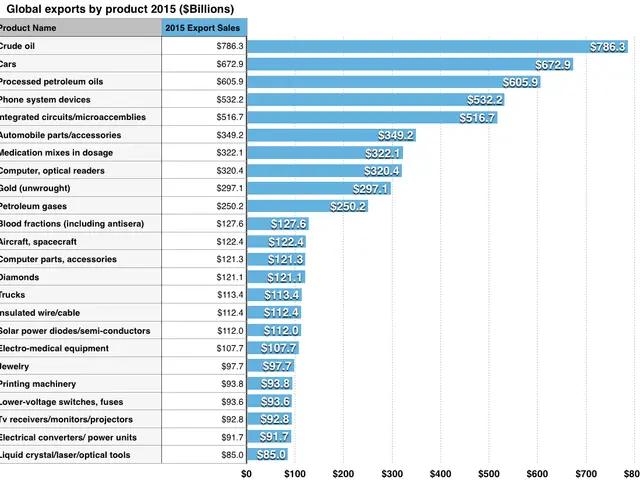Warning Signs of Fraudulent Travel Deals in 2025 and Strategies to Steer Clear
Rising Threat of AI-Assisted Travel Scams in 2025
In the ever-evolving world of travel, a new challenge has emerged: the increasing prevalence of AI-assisted travel scams. These sophisticated frauds, utilising advanced AI technologies, pose significant risks to consumers worldwide.
One of the key examples of these scams is the creation of fake travel destinations and websites. Cybercriminals employ generative AI to generate realistic websites, photorealistic images, videos, and fabricated itineraries for non-existent vacation spots. These scams are often promoted through targeted social media ads or email campaigns, offering luxury getaways at deeply discounted prices. Unfortunately, victims pay deposits or full amounts, only to discover that the destination is fictitious.
Another common scam involves fake accommodation listings and phishing apps. Scammers create counterfeit accommodation listings on legitimate platforms and advertise irresistible discounts. They also deploy fake travel and itinerary apps, often spread via unofficial app stores, which can install spyware or steal login credentials. Impersonation of platforms like Booking.com has led to substantial losses, such as £370,000 in the UK alone.
Scammers also impersonate customer service agents through voice calls, video chats, and chatbots powered by AI, extracting money or personal data from travelers during booking or customer service interactions.
On the dark web, fraudsters use AI to quickly launch fake travel sites that resemble legitimate ones. They engage in "triangulation fraud," using stolen credit cards and loyalty accounts to book luxury trips at deep discounts, often without victims realising the fraud. Frequent flyer accounts themselves are targeted for resale on the dark web.
Surveys indicate that nearly half of global consumers lack confidence in the travel industry's ability to protect them from AI-powered fraud, with distrust particularly high in sharing economy services such as vacation rentals. Additionally, 69% of respondents see AI-powered fraud as a greater threat than traditional identity theft.
In the UK, nearly 1 in 5 travelers have fallen victim to travel scams during the booking process in 2025, with individual losses sometimes exceeding £500.
To navigate this evolving threat landscape, consumers are advised to verify travel offers through independent sources, remain skeptical of deals that seem too good to be true, avoid unofficial apps, and prioritise secure, well-known booking platforms.
In response to these scams, airlines, hotels, and booking platforms are tightening fraud checks, monitoring suspicious activity, and flagging dubious bookings for manual review.
Travelers should also be aware of other common scams, such as the closed attraction trick, where a local tells a tourist that an attraction is closed, only for it to be open, and the local then tries to sell an overpriced tour. To avoid this, check the attraction's official website or pages for their hours, and politely thank and dismiss the local if they claim it's closed.
The pickpocket distraction scam involves someone bumping into a tourist and causing a distraction, allowing an accomplice to steal their belongings. To avoid this, be aware of your surroundings and keep your belongings secure.
Tourists are often targeted due to their general unfamiliarity with the country. Solo female travelers may be particularly targeted due to assumptions about their gullibility or ease of pressure. To avoid fake police officers, always verify the authenticity of any law enforcement officer by asking for identification and contacting local authorities if necessary.
In the digital age, it's crucial to stay vigilant and informed when planning a trip. By staying aware of these scams and taking the necessary precautions, travelers can ensure a safe and enjoyable journey.
- Despite the rise in AI-assisted travel scams, such as fake travel destinations and phishing apps, female travelers can mitigate risks by verifying offers through independent sources and avoiding unofficial apps.
- In addition to the traditional travel scams like closed attraction tricks and pickpocket distraction scams, solo female travelers should be cautious of potential threats like fake police officers and prioritize their safety by verifying the authenticity of law enforcement personnel.





